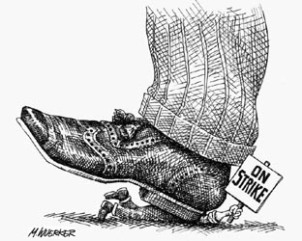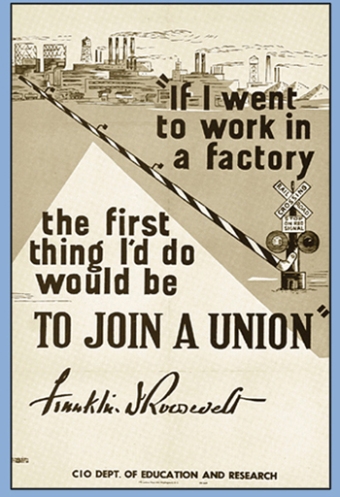This essay begins the day it occurs to me that the Village of Medina, N.Y. may actually be dissolved in service to lower taxes, union-busting, and the bottom line. See Article, “Dissolution committee sees $1 million in local tax savings, Projected impacts for towns, village not released yet” on http://www.orleanshub.com/ for a synopsis.
What’s in a name? Who needs a police department? An ambulance service? A fire department? Why, the name’s no thing, and those services could be outsourced . . . at some point . . . .
The assumptions underlying the discussion have gone unquestioned. Lowering taxes, saving money, the bottom line, have become catechisms and ritualistic murmurs rather than points to be discussed, and questioned for their value in terms that include more than dollars and cents.[1]
Why? Numbers are powerful. Scientists can limit the weight of the evidence by using words like “causal” rather than “correlative” and by adding “plus or minus three percentage points”. Meanwhile, the research becomes “truth” to most of the world, because it is crummy to understand that there are very few known facts about economics or people, and a great deal of guessing is going on.
In order to progress from one fact to the next, we stand on top of assumptions together. We stop asking one another to define the terms we are using. We stop questioning the route we are taking, in our impatience to get a move on, to the next step.
I keep coming across the same basic assumptions whenever a policy argument comes up about how best to spend money as a community, and take care of one another. Policymakers do not talk about these assumptions. They just accept them as truth, and advance their ideas on the second floor of these assumptions.
What are the assumptions in this small-town economic debate?
1) “Bottom line” economics is always the goal
2) Corporations are intrinsically good for the community
- The shareholder value rule is sound
- The business judgment rule is sound
- Limitations on liability are a good idea
- The “race to the bottom” is good for the community since it encourages businesses to locate in New York State
- Corporate election tinkering is a proper exercise of the First Amendment
3) Unions are bad for the community
Let me clear my throat:
These assumptions are not gospel truth. They are opinions. Each is discussed below.
1) The bottom line
The bottom line “refers to a company’s net earnings, net income or earnings per share (EPS). Bottom line also refers to any actions that may increase/decrease net earnings or a company’s overall profit. A company that is growing its net earnings or reducing its costs is said to be “improving its bottom line”.[2]
Overvaluing the bottom line is like thinking in PowerPoint. If you focus too heavily on the bottom line, say goodbye to subtlety, nuance, and complexity.
The net earnings of a company do not take into account values such as the community well-being, employee satisfaction and sustainability, or environmental effects of efficiency.
Company net earnings also rely on a competitive model of capitalism which can run counter to democratic well-being.
For example, a company which profits from the labor of prison inmates can and must spend monies advertising for hardline conservative politicians who encourage lengthy prison sentences for convicted persons. Helping ensure the politician who keeps the free labor pool available will increase the net earnings —the bottom line—of the company. The company is obligated to increase earnings for the benefit of shareholders. Whether families are torn apart because nonviolent offenders end up spending years in prison is just as valuable to the corporation as butterfly patterns in South America. It’s not valuable. It means nothing.
2) Corporations are NOT “intrinsically” good for the community
a. The Shareholder Value Rule
In 1940, Henry Ford fought in court over the issue of whether his company’s decisions should be made in service to shareholder profit alone in Dodge v. Ford Motor Company. His argument was that his employees and the impact of his business on the community should be just as important as immediate shareholder profit. He lost. The Court held that a business corporation is organized primarily for the profit of the stockholders, as opposed to the community or its employees. So, what’s good for the company is good for the shareholders, not necessarily the community the corporation exists in. This is not to say a corporation cannot benefit the community, just that its goal is completely aloof from such an outcome.
Corporations are in it for the money, and if employees are paid less, so be it.
If re-organization occurs and people are fired, fine. If husks of buildings and environmental waste are left behind, that’s too bad. The shareholders must profit, and the CEO who knows how to slice and dice a company to increase profits has done his job correctly. If police departments are left without pensions and required to work overtime to make a living, and show up on your doorstep exhausted and tardy, what does the shareholder care? The officer’s performance is not a measurement of the corporate performance, which can be found on a quarterly statement.
Similar to the shareholder value rule which evolved from that case is the business judgment rule.
b. The Business Judgment Rule
The Business Judgment Rule protects corporations from being sued by providing a high threshold to plaintiff shareholders who wish to show wrongdoing by a corporation.
“The business judgment rule reviews the process of the decision and usually not the decision’s substance, even if it is a wrong or poor decision. Therefore, the business judgment rule limits judicial inquiry into business decisions. In addition, it protects directors who are not negligent in the decision making process.” Retrieved March 15, 2014 from http://lawcorporations.wikia.com/wiki/Business_Judgment_Rule.
The Business Judgment Rule is also the standard in New York State. The idea is that even wrong or incorrect actions by a board of directors of a corporation will be treated gently by the Courts, who do not want to interfere with the process of decision-making by a corporation. The procedure to sue is onerous, and even if there is a substantive problem with the decision, it will usually be ignored altogether, unless it is fraudulent, negligent, or similarly egregious.
The business judgment rule is the belly laugh of the powerful: you think there is a problem in the boardroom? Good luck doing anything about it.
The implementation of the Business Judgment Rule in New York is part of what some have termed the “race to the bottom.”
c. The Race to the Bottom
What is the race to the bottom?
“The concept of a regulatory “race to the bottom” emerged in the United States during the late 19th and early 20th century, when there was charter competition among states to attract corporations to domicile in their jurisdiction. Some described the concept as the “race to efficiency”, and others, such as Justice Louis Brandeis, as the “race to the bottom”.[1] “ Retrieved March 15, 2014 from http://en.wikipedia.org/wiki/Race_to_the_bottom#cite_note-coined-1
The race to the bottom includes employing the Business Judgment Rule in courtrooms across those states which intend to flirt with industry, encouraging corporations to set up shop within state borders and in return, the State will ensure that regulation is light, taxes low, and adverse litigation minimal.
The corporate form is designed to limit corporate liability, with the government and justice system’s blessing.
When the corporation was a mere entity, the result was only bad for taxpayers, the environment, and small businesses the corporation was indebted to, which it did not have to pay back out of personal assets.
d. Corporate Election Tinkers
Since Citizen United v. Federal Elections Committee 558 U.S. 310 (2010), corporations are not mere business entities, but are akin to election tinkerers in their political advertising spending rights. In fact, the decision never mentions corporate personhood or the Fourteenth Amendment, but it gave ordinary Americans a glimpse into how far removed from common sense jurisprudence has become.
“The Court’s ruling effectively freed corporations and unions to spend money both on “electioneering communications” and to directly advocate for the election or defeat of candidates (although not to contribute directly to candidates or political parties).” Retrieved on March 15, 2014 from http://en.wikipedia.org/wiki/Citizens_United_v._Federal_Election_Commission.
This is a grave misuse of the First Amendment. Advertising speech conveys to the listener a powerful point of view, particularly a well-funded advertising campaign designed to use emotional rhetoric to obtain a particular result. A million people giving a dollar each will not convey its message to the rest of the country as powerfully as the billion dollar company donating advertising dollars will push its own contrary message to Americans. Nor can the corporation be said to represent the political opinions of all its employees who work there. But, it speaks for them now.
3) Unions
Police, fire, ambulance, and teachers union-members are the only evidence I’ve ever seen of a middle class in this community. They work hard, they give back, they pay taxes, and they make the community better. But ask a rural farmer what he thinks of unions and he’ll probably bark, “I pay too much in taxes.” Personally, I doubt it. For your taxes, you have a local library, a hospital, a fire department, an ambulance service, good schools, and a police department, not to mention parades, streetlights, snowplows, garbage collection, pothole repair, animal control, parks, and local festivals, fundraisers, and events. People grumble about union wages, healthcare and pensions. At the same time, they expect that their kids will be taught, fires put out, crime solved, and safety ensured. They want something for nothing. We do not live in easy times, but turning on unions is turning on our neighbors, and telling them they do not deserve as much as they have been getting. These are the very people knocking themselves out to serve the greater good for decades. Unions make it possible for them to live, thrive, and succeed in a helping profession which they may not be able to afford to be a part of, except that their union has made it possible. As the discussion continues about dissolution of the village of Medina, NY, look at the assumptions as merely that: assumptions . . . Not gospel truth, not catechism, not sweet remembered prayers.
[1] What I’ve learned about these catechisms comes from my Bachelor of Science degree at R.I.T., where I was required to take Statistics and Research Methods I and II, all highly dependent on an understanding and acceptance of statistical analysis. It comes from the case law I was required to read and apply at Albany Law School, especially in the class “Business Organizations”.
[2] Retrieved March 15, 2014 at http://www.investopedia.com/terms/b/bottomline.asp





